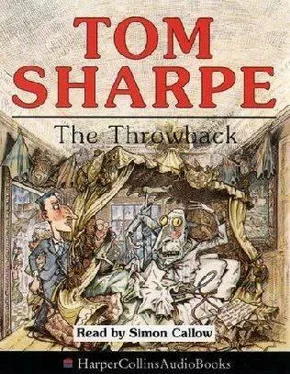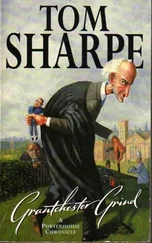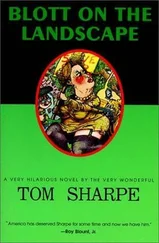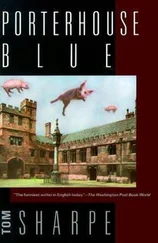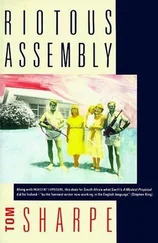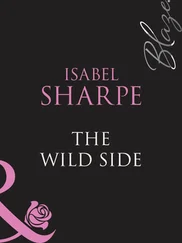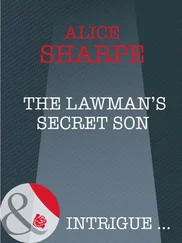Tom Sharpe - The Throwback
Здесь есть возможность читать онлайн «Tom Sharpe - The Throwback» весь текст электронной книги совершенно бесплатно (целиком полную версию без сокращений). В некоторых случаях можно слушать аудио, скачать через торрент в формате fb2 и присутствует краткое содержание. Жанр: Современная проза, на английском языке. Описание произведения, (предисловие) а так же отзывы посетителей доступны на портале библиотеки ЛибКат.
- Название:The Throwback
- Автор:
- Жанр:
- Год:неизвестен
- ISBN:нет данных
- Рейтинг книги:3 / 5. Голосов: 1
-
Избранное:Добавить в избранное
- Отзывы:
-
Ваша оценка:
- 60
- 1
- 2
- 3
- 4
- 5
The Throwback: краткое содержание, описание и аннотация
Предлагаем к чтению аннотацию, описание, краткое содержание или предисловие (зависит от того, что написал сам автор книги «The Throwback»). Если вы не нашли необходимую информацию о книге — напишите в комментариях, мы постараемся отыскать её.
The Throwback — читать онлайн бесплатно полную книгу (весь текст) целиком
Ниже представлен текст книги, разбитый по страницам. Система сохранения места последней прочитанной страницы, позволяет с удобством читать онлайн бесплатно книгу «The Throwback», без необходимости каждый раз заново искать на чём Вы остановились. Поставьте закладку, и сможете в любой момент перейти на страницу, на которой закончили чтение.
Интервал:
Закладка:
He was up again at dawn and on his way but it was half past seven before he crossed the Farspring Knowe and looked down into the wooded valley. Divet Hall stood a mile away and smoke was coming from a chimney. Miss Deyntry was up and about surrounded by dogs, cats, horses, parrots and a tame fox she had once waded through a pack of hounds to rescue while its vixen mother was being torn to pieces. In middle age Miss Deyntry disapproved of bloodsports as heartily as she had once pursued them in her wild youth. She also disapproved of the human species and was known for her misanthropy, a reversal of opinions that was generally explained by her having three times been jilted. Whatever the cause, she was known as a woman with a sharp tongue and people tended to avoid her. The only ones who didn't were tramps and the few wandering gipsies who still followed the ancient ways. Known as muggers in the past because they made pots and mugs during the winter and sold them in the summer, there were a few caravans left in the country and autumn would find them camped in the meadow behind Divet Hall. There was a caravan there now as Lockhart loped sideways down the steep hillside and their dog began to bark. Before long Miss Deyntry's menagerie had followed suit. Lockhart opened the gates to a cacophony of dogs but he was as mindless of them as he was of almost everything else and he walked past them and knocked on the door. After an interval Miss Deyntry appeared. Dressed in a smock she had designed without regard for appreciation but solely for convenience (it was fitted with pockets all down the front), she was more ornamental than attractive. She was also brusque.
'Who are you?' she asked as soon as she had taken stock of Lockhart and noted with imperceptible approval the straw in his hair and his unshaven chin. Miss Deyntry disapproved of too much cleanliness.
'Lockhart Flawse,' said Lockhart as bluntly as she had put the question. Miss Deyntry looked at him with more interest.
'So you're Lockhart Flawse,' she said and opened the door wider. 'Well, don't just stand there, boy. Come in. You look as if you could do with some breakfast.'
Lockhart followed her down the passage to the kitchen which was filled with the smell of home-cured bacon. Miss Deyntry sliced some thick rashers and put them in the pan.
'Slept out, I see,' she said. 'Heard you'd been and married. Walked out on her, eh?'
'Good Lord, no,' said Lockhart. 'I just felt like sleeping out last night. I've come to ask you a question.'
'Question? What question? Don't answer most people's questions. Don't know that I'll answer yours,' said Miss Deyntry staccato.
'Who was my father?' said Lockhart, who had learnt from Mr Dodd not to waste time on preliminaries. Even Miss Deyntry was taken by surprise.
'Your father? You're asking me who your father was?'-
'Yes,' said Lockhart.
Miss Deyntry prodded a rasher. 'You don't know?' she said after a pause.
'Wouldn't be asking if I did.'-
'Blunt too,' she commented, again with approval. 'And why do you think I know who your father was?'
'Mr Dodd said so.'
Miss Deyntry looked up from the pan. 'Oh, Mr Dodd did, did he now?'
'Aye, he said you were her friend. She'd be likely telling
you.'
But Miss Deyntry shook her head 'She'd as soon have confessed to the priest at Chiphunt Castle, and he being a Papist and a Highlander to boot while she and your grandfather were ever godless Unitarians; it's as likely as spaniels laying eggs,' said Miss Deyntry, breaking eggs on the edge of the iron pan and dropping them into the fat.
'Unitarians?' said Lockhart. 'I never knew my grandfather was a Unitarian.'
'I doubt he does himself,' said Miss Deyntry, 'but he's forever reading Emerson and Darwin and the windbags of Chelsea and the ingredients of Unitarianism are all there, mix them in proper proportions.'
'So you don't know who my father was?' said Lockhart not wishing to be drawn into theology before he had had his fill of bacon and eggs. Miss Deyntry added mushrooms.
'I did not say that,' she said, 'I said she did not tell me. I have a mind who he was.'
'Who?' said Lockhart,
'I said I had a mind. I didna say I'd tell. There's many a slip 'twixt cup and lip as no better than I should know and I would not want to cast aspersions.'
She brought two plates across to the table and ladled eggs and bacon and mushrooms onto them. 'Eat and let me think,' she said and picked up her knife and fork. They ate in silence and drank from large cups of hot tea noisily. Miss Deyntry poured hers into a saucer and supped it that way. When they had finished and wiped their mouths, she got up and left the room, returning a few minutes later with a wooden box inlaid with mother-of-pearl. 'You'll not have known Miss Johnson,' she said laying the
box on the table. Lockhart shook his head. 'She was the postmistress over Ryal Bank, and when I say postmistress I don't mean she had a wee shop. She carried the mail herself on an old bicycle and lived in a cottage before you reach the village. She gave me this before she died.' Lockhart looked at the box curiously. 'The box is nothing,' said Miss Deyntry, 'It's what's in it that is pertinent. The old woman was a sentimental body though you'd not have thought it to hear her. She kept cats and when she had finished her round of a summer day she'd sit out beside her door in the sun with the cats and kittens around her. One day a shepherd called with his dog and the dog took a mind to kill one of these kittens. Miss Johnson never moved an eyelid. She just looked at the man and said, "Ye should feed your dawg." That was Miss Johnson. So you wouldn't credit her with o'ermuch sentiment.'
Lockhart laughed and Miss Deyntry studied him. 'You're afful like your mither. She had a bray like that but there's something more besides.' She pushed the box towards him and opened the lid. Inside, wrapped neatly in an elastic band, was a pile of envelopes.
'Take them,' she said but kept her hand on the box. 'I promised the old woman I'd never let the box fall into anyone else's hands but she said nothing of the contents.'
Lockhart picked the bundle out and looked at the envelopes. They were all addressed to Miss C. R. Flawse, c/o The Postmistress, Ryal Bank, Northumberland, and they were still sealed.
'She wouldn't open them,' Miss Deyntry explained. 'She was an honest old soul and it would have been against her religion to meddle with the Royal Mail.'
'But why didn't my mother have them sent to Black Pockrington and Flawse Hall?' Lockhart asked. 'Why have them care of The Postmistress, Ryal Bank?'
'And have your grandfather lay his hands on them and know what she was doing? Are ye so soft in the head? The old devil was so jealous of her he'd never have hesitated to censor them. No, your mother was too canny for him there.'
Lockhart looked at the postmark of one letter and saw that it came from America and was dated 1961.
'This was sent five years after she died. Why didn't Miss Johnson send it back?'
'It would have meant opening it to find the return address and she would never have done that,' said Miss Deyntry. 'I told you the Royal Mail was a sacred trust to her. Besides she did not care to have your mother's only friend to know that she was dead. "Better to live in hope than abide in sorrow," she used to say and she knew what she was talking about. The man she was affianced to went missing at Ypres but she would never admit that he was dead. Love and life eternal she believed in, more power to the old woman. I would that I believed in either but I have not the faith.'
'I suppose I have the right to open them,' said Lockhart. Miss Deyntry nodded.
'She did not leave you much else except your looks but I doubt you'll find your father's name in any of them.' 'I may get a clue.'
Читать дальшеИнтервал:
Закладка:
Похожие книги на «The Throwback»
Представляем Вашему вниманию похожие книги на «The Throwback» списком для выбора. Мы отобрали схожую по названию и смыслу литературу в надежде предоставить читателям больше вариантов отыскать новые, интересные, ещё непрочитанные произведения.
Обсуждение, отзывы о книге «The Throwback» и просто собственные мнения читателей. Оставьте ваши комментарии, напишите, что Вы думаете о произведении, его смысле или главных героях. Укажите что конкретно понравилось, а что нет, и почему Вы так считаете.
